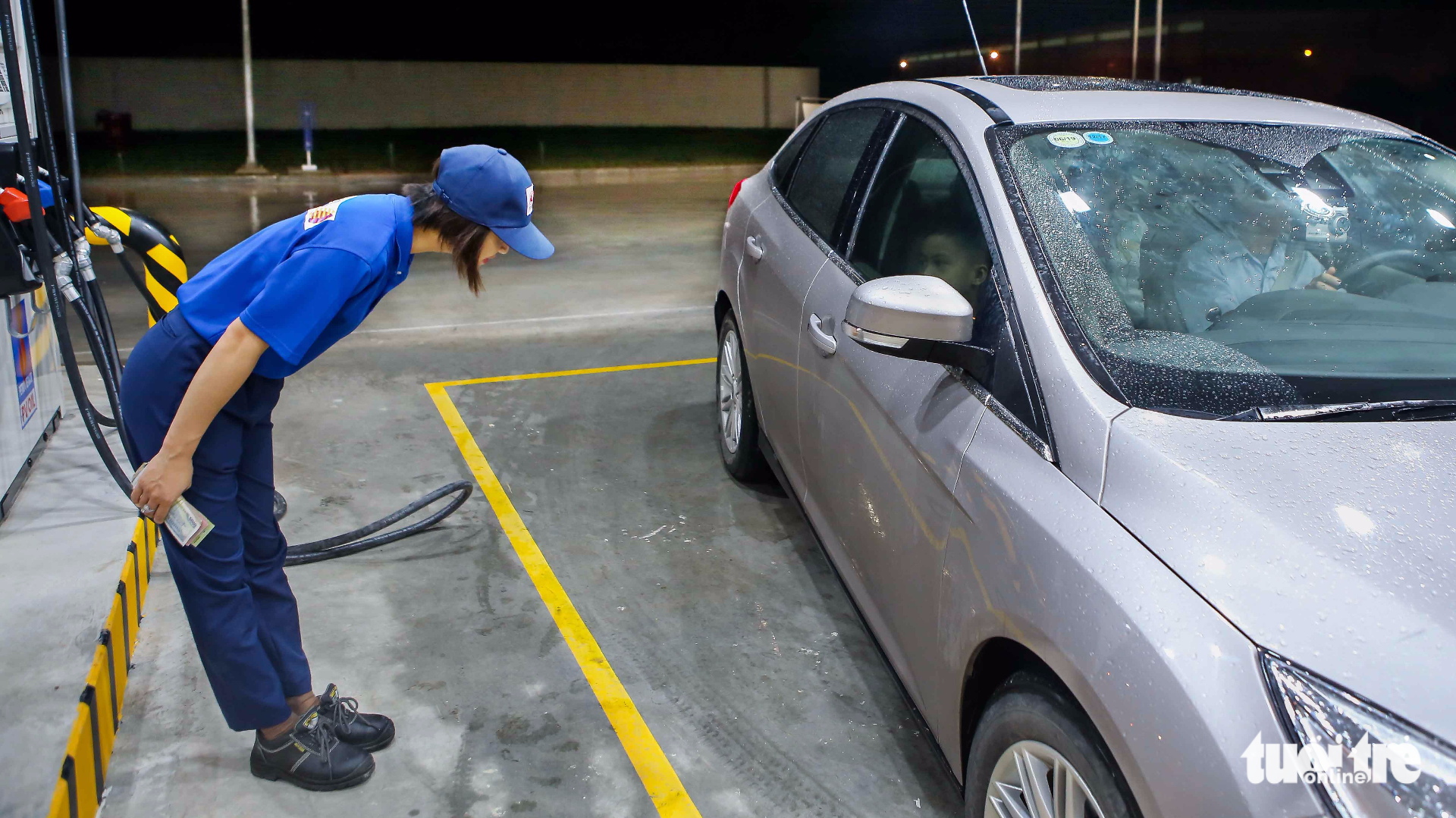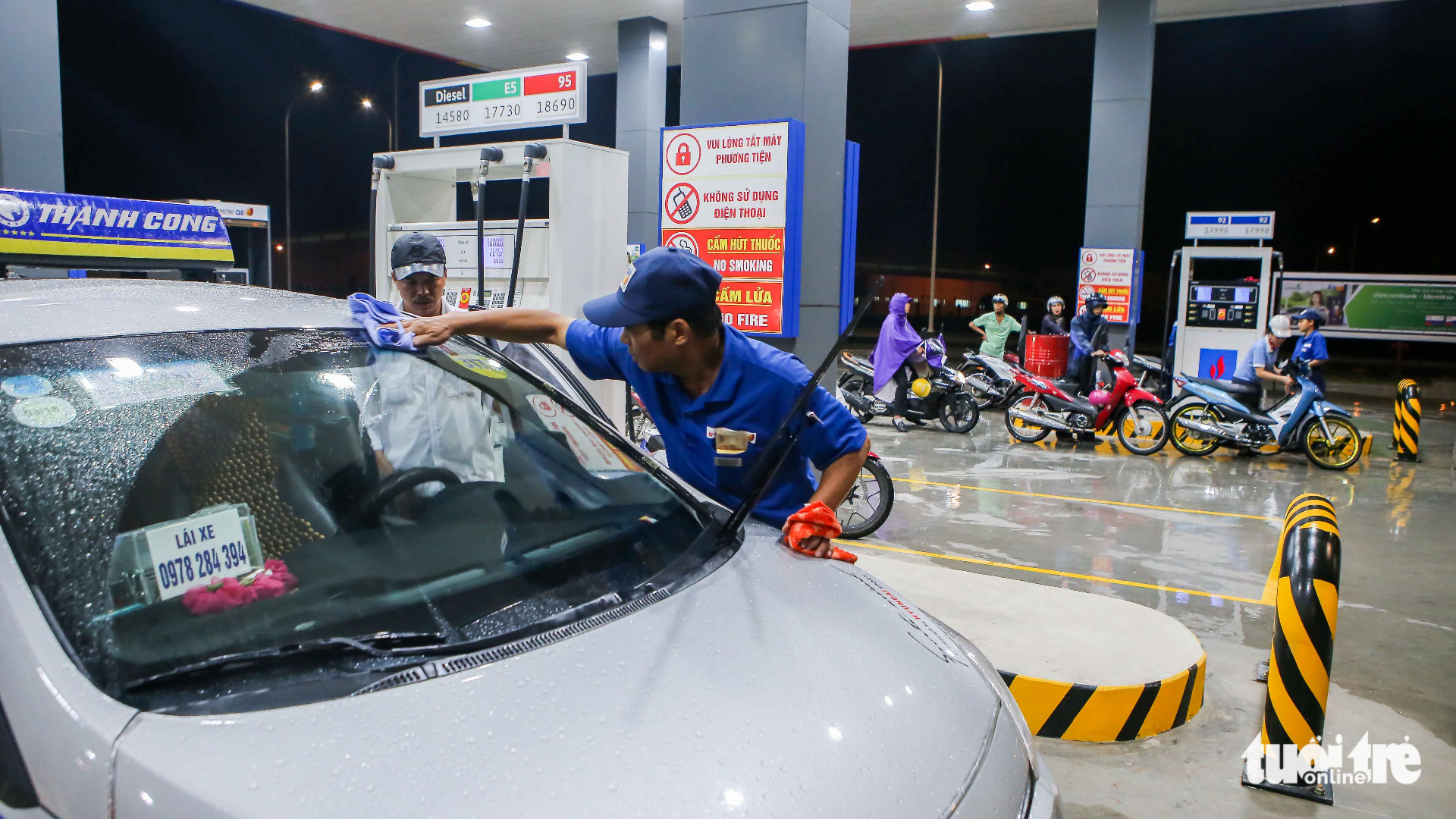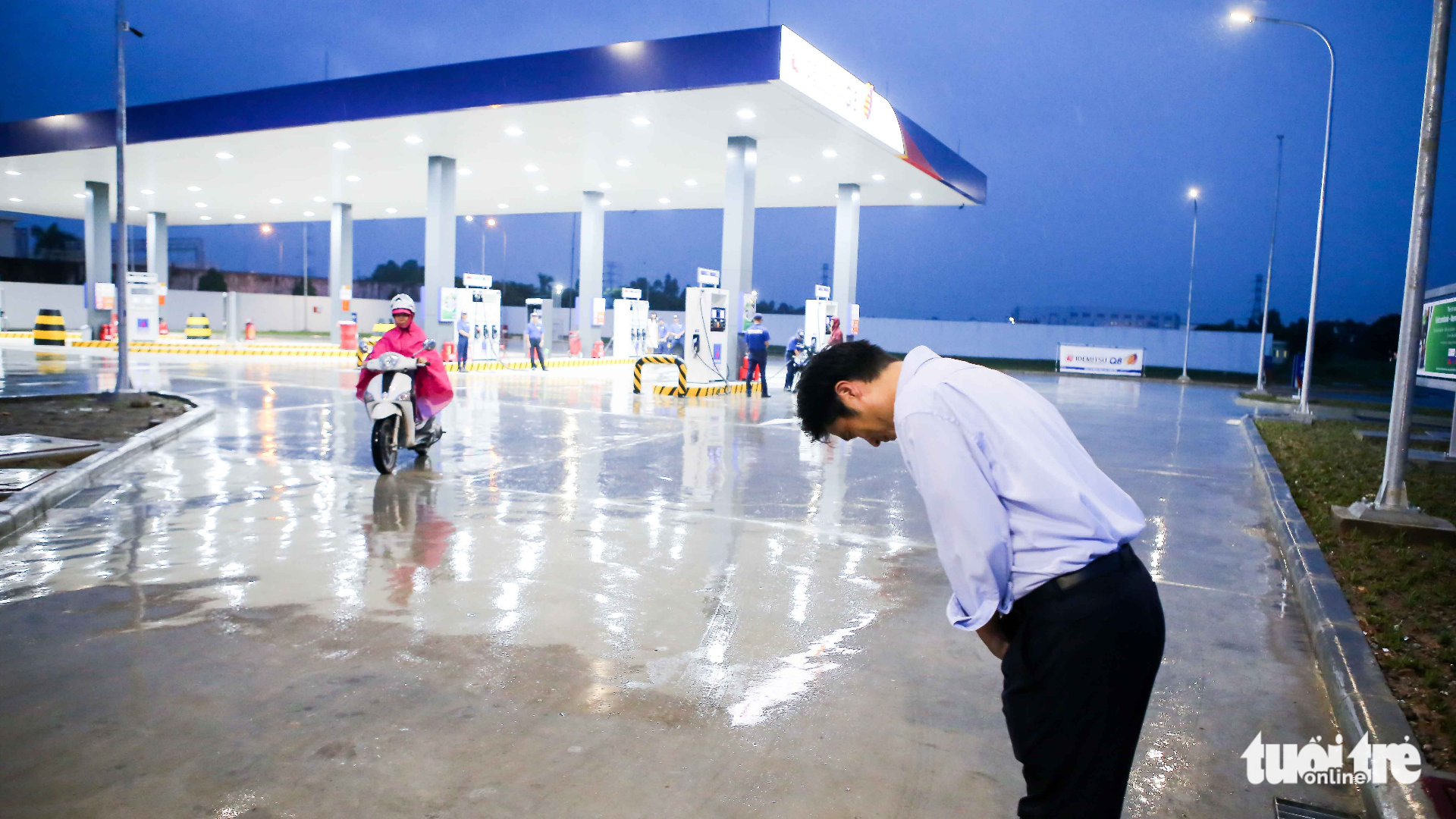With 31 domestic companies licensed to import and retail fuel, it is a breath of fresh air that discussions of a truly competitive market in Vietnam are finally happening after Idemitsu Q8 – a wholly foreign-invested company – launhed its first filling station in Hanoi last week.
Idemitsu Q8, a joint venture between Japan’s Idemitsu and Kuwait Petroleum International Ltd, is a rude awakening for its Vietnamese rivals: step up your game, or step out of the game.
When the company opened its first retail outlet last Friday at the Thang Long Industrial Park in Hanoi’s Dong Anh District, its commitment to bringing Japan-quality service to the local market was reaffirmed by a promise to sell gasoline so precisely measured that they guaranteed less than a 0.01 liter margin of error.
Earlier this week, Idemitsu Q8’s general director Hiroaki Honjo scored another public relations brownie point when he stood in the rain to bow goodbye to each of the gas station’s customers as a gesture of gratitude for choosing the company’s service.
The launch of Vietnam’s first fully foreign-owned petroleum retailer has thus been embraced by both the public and industry experts who have been long awaiting winds of change for the highly conservative sector.
Insiders, however, agree that while Idemitsu Q8 is making a splash, only an overhaul of Vietnam’s fuel policies will bring real change in the local market.
 |
| An Idemitsu Q8 employee bows to a customer. Photo: Tuoi Tre |
Half-hearted competition
Petroleum retail prices in Vietnam are jointly regulated by the Ministry of Finance and the Ministry of Industry and Trade, which together decide and adjust the ceiling price for the country’s available fuel products.
The latest ceiling price for RON 92 gasoline went into effect on October 5 at VND17,999 (US$0.79) per liter.
Though retailers are permitted to offer gasoline at prices below the maximum, petroleum companies in Vietnam typically adjust their prices to match the ceiling.
Experts have already pointed out that this is a vicious circle: strict state regulation over gasoline prices forces businesses to fight for market share by increasing the discount on gas distributed to outlets, rather than offering competitive prices to customers.
In turn, the cost of business increases and companies are prevented from lowering retail prices.
Furthermore, petroleum businesses are legally responsible for maintaining a fixed profit margin of VND300 per liter, which is already accounted for in the price customers pay at the pump.
This not only guarantees that petroleum companies always remain profitable, but also narrows the room for competition among businesses.
“If a company can import gasoline cheaper than their competitors, they should be able to sell the product at a more competitive price, and vice versa. Let the market decide for itself,” said Nguyen Van Tiu, general director of a Hanoi-based petroleum company.
“The state must let gasoline prices be decided by the rules of the market, and they have to do so urgently,” Tiu stressed. “Only then will there be true competition among businesses, which will ultimately benefit customers.”
However, Phan The Rue, chairman of the Vietnam Petroleum Association, warned that any move toward deregulation should be considered with caution in order to prevent foreign companies from manipulating Vietnam’s fuel market.
 |
| An Idemitsu Q8 employee provides free windshield cleaning to a car. Photo: Tuoi Tre |
Nevertheless, Dr. Vu Dinh Anh from the Institute for Pricing Research asserted that it is unlikely that competition would result in cut-throat business tactics.
“When a foreign business enters the market, they can compete with local companies by relying on better management, modern retail systems, and a diverse range of products,” Anh said. “However, when it comes to gasoline, there are only a limited number of products, such as RON 92, RON 95, and E5 that are available. That makes it difficult for competition to push a company out of the market.”
|
While Idemitsu Q8 has just launched its first Vietnam outlet, 31 gasoline importers and wholesalers already supply the country’s 14,000 gas stations. Idemitsu currently sells RON 92 gasoline at the same price as Vietnamese businesses, while offering RON 95 gasoline at VND200 per liter less expensive . An Idemitsu Q8 representative told Tuoi Tre (Youth) newspaper that the company first plans to establish its outlet network in northern Vietnam before expanding to the central and southern regions, though refusing to comment on the details. |
Like us on Facebook or follow us on Twitter to get the latest news about Vietnam!





















































